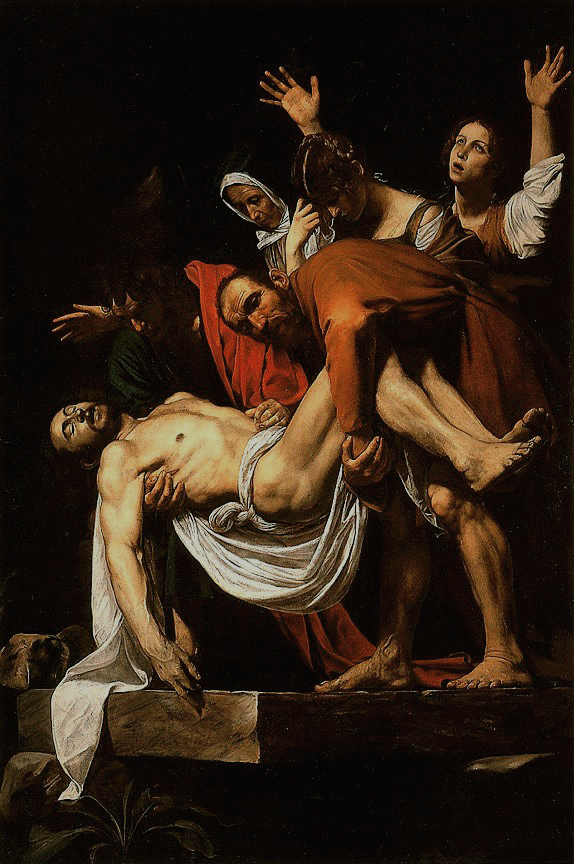Caravaggio, The Deposition of Christ, 1604
Caravaggio’s art is made from darkness and light. His pictures present spotlit moments of extreme and often agonized human experience. A man is decapitated in his bedchamber, blood spurting from a deep gash in his neck. A man is assassinated on the high altar of a church. A woman is shot in the stomach with a bow and arrow at point-blank range. Caravaggio’s images freeze time but also seem to hover on the brink of their own disappearance. Faces are brightly illuminated. Details emerge from darkness with such uncanny clarity that they might be hallucinations. Yet always the shadows encroach, the pools of blackness that threaten to obliterate all. Looking at his pictures is like looking at the world by flashes of lightning.
Andrew Graham-Dixon, from Caravaggio: A Life Sacred and Profane
Graham-Dixon's Who Killed Caravaggio? ...
On the survival of Caravaggio ...
Caravaggio's sending the artichokes back ...
Caravaggio’s art is made from darkness and light. His pictures present spotlit moments of extreme and often agonized human experience. A man is decapitated in his bedchamber, blood spurting from a deep gash in his neck. A man is assassinated on the high altar of a church. A woman is shot in the stomach with a bow and arrow at point-blank range. Caravaggio’s images freeze time but also seem to hover on the brink of their own disappearance. Faces are brightly illuminated. Details emerge from darkness with such uncanny clarity that they might be hallucinations. Yet always the shadows encroach, the pools of blackness that threaten to obliterate all. Looking at his pictures is like looking at the world by flashes of lightning.
Andrew Graham-Dixon, from Caravaggio: A Life Sacred and Profane
Graham-Dixon's Who Killed Caravaggio? ...
On the survival of Caravaggio ...
Caravaggio's sending the artichokes back ...












































































































































































No comments:
Post a Comment